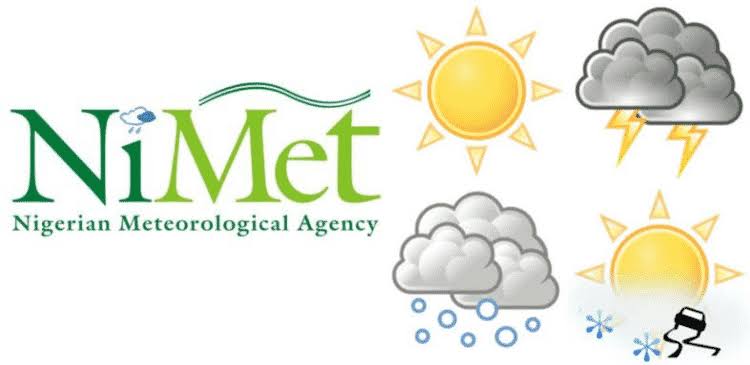North Central (middle belt) states will experience delayed onset of rain, the annual Seasonal Climate Prediction (SCP) prediction of the Nigerian Meteorological Agency (NiMet) for the year 2024, has shown.
The states include Benue, Niger, Nasarawa, Kogi, Plateau, and Kwara states. The federal capital territory, Abuja is also affected. These states will have their rainy season onset in May, 2024.
Other parts of Ekiti, Oyo, Ondo, Edo, Delta, Anambra, Enugu, and Ebonyi states are likely to experience delayed onset.

The report was unveiled on Tuesday by the Minister of Aviation and Aerospace Development, Barr. Festus Keyamo, SAN.
The report also predicted an early end of the rainy season in “parts of Yobe, Jigawa, Sokoto, Kebbi, Kano, Kaduna, Plateau, Nasarawa Taraba, Gombe, Bauchi, Cross River, Ebonyi, Ogun, and Lagos states.” The rainy season is predicted to end in October 2024.
According to the report, a normal onset is likely to occur over states like Borno, Abia, and Akwa Ibom states. They are predicted to have an early onset when compared to their long-term averages.
However, a late cessation is predicted over the southern states of Bayelsa, Rivers, Akwa Ibom, Ondo, Ekiti, and parts of Edo, Delta, Ogun, Oyo, Kogi, Kwara, FCT, Niger, and Kaduna.
NiMet also predicted that the annual rainfall amount is predicted to be below normal over parts of Yobe, Jigawa, Bauchi, Kano, Kebbi, Gombe, Plateau, Taraba, Nasarawa, Benue, Enugu, Ebonyi, Cross River, Delta and Bayelsa states when compared to their long term normal. However, other parts of the country are likely to observe normal to above-normal annual rainfall amounts.
Most parts of the country are expected to experience a shorter length of season, however, Bayelsa, Rivers, and Akwa-Ibom are likely to experience a longer length of season when compared with their mean. Normal to shorter length of season will likely occur in other parts of the country.
The Minister, Mr. Keyamo encourages “all stakeholders to evaluate the predictions thoroughly and strategically, to build adaptive capacity and resilience against climate variability within your respective sectors.”
“It is my desire that the content of the document enables policymakers to plan activities, allocate resources effectively, and protect our citizens from the adverse impacts of weather” he said.
“As we gather here today, we know the important role of accurate and timely climate predictions in shaping our preparedness and responses to ever-changing weather events. The information we are about to unveil today represents a roadmap for our communities, businesses, and policymakers to navigate the upcoming 2024 seasons’ he further stated.














